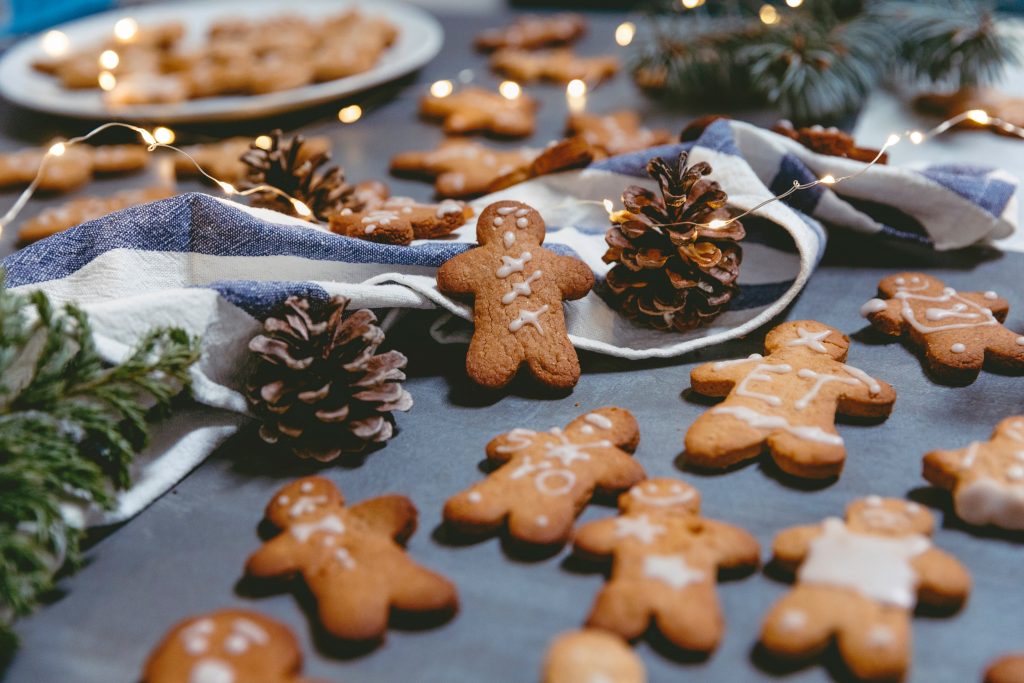So much of the magic of Christmas can get lost to the intense anxiety, depression and fear around food which the holidays can trigger. For people who struggle with mental health and particularly those with disordered eating, Christmas can be one of the most stressful times of year. It’s no wonder with the lack of daily structure and more focus on family and food. The thing to remember is that even though this might feel the most overwhelming time of the year, your health and recovery is the most important thing to hold onto and is definitely worth fighting for. That’s why I have come up with some pointers to help you stay on track with your eating this year.
Food & Drinking Tips to Support Eating Disorder Recovery During the Festive Period:
- Failing to plan is planning to fail! Plan your meal and snack structure ahead of time and visualise yourself eating the right portion sizes and having a successful eating day (however that looks for you in your recovery). I sometimes suggest to my clients to do a ‘trial Christmas day’ a couple weeks before so that Christmas day doesn’t seem as scary when it comes and you then have time to discuss any difficulties which may arise
- Include some festive foods in your meal plan and to discuss with your Nutritional Therapist ahead of time so you can address any potential anxieties and come up with a back-up plan

- Even though eating times and types of food can look different on Christmas day, it is still really important to eat nourishing, balanced meals to support blood sugar levels throughout the day. It may be tempting to restrict certain meals or skip snacks/drinks to account for the festive foods you’re planning to have. However, this will take away the purpose of the challenge and you may find you are less present with your family/friends. Also restricting can lead to a binge later in the day.
- Ensure you discuss your plan with someone who will be with you over the holidays and whom you trust so that they can help you stick to it
- Keep being open and honest to your recovery team and your friends/family at home about what feels too unmanageable on any given day – you don’t need to prove anything to anyone on Christmas day, remember recovery is for you!
- There may be temptation to restrict food the following day/s if you have allowed yourself to enjoy a good amount of festive food and drink on Christmas day. Remind yourself that this will take away from the progress you are making. Take each day as it comes and try your best to eat as well as you can – this will help prevent unhelpful behaviours such as bingeing.

- A word on alcohol (if you are of age to drink!) – there may be temptation to restrict your eating when drinking and also to drink more than usual during this time. Alcohol can really upset blood sugars so always ensure you drink with a meal (or after a meal) to slow down its release into the bloodstream. If you are prone to bingeing then alcohol can be a trigger so I recommend talking this through with your Nutritional Therapist and deciding a) if you really want to drink b) if you want to drink then planning how many drinks you will have and when throughout the day, ideally with meals or after eating c) ensuring you drink a glass of water for every alcoholic drink to stay hydrated
- Getting away from our everyday routines is a good thing as it can allow you to rest up, physically and mentally, and generally destress. However, some of us need structure which is non-food related, even if it is a loose one, just to feel safe and to allow us to get out of our heads and to not think about our food or bodies. Talk to your therapist ahead of time about how much structure you want to implement and what that might look like for you. It can be as simple as getting out of the house for a walk in the daylight and preferably in nature, which will do wonders for your mental health and boost your endorphins and serotonin levels (as long as activity is allowed in your recovery programme).
In a nutshell, make sure you prepare for Christmas at least a couple weeks in advance and lean on your support team so you don’t feel too overwhelmed when the holidays arrive. Take actions which will support your recovery and help you feel the best you can. Remember that there is no such thing as perfection when it comes to recovery, so try your best to enjoy yourself and, most importantly, be kind and compassionate towards yourself. If you have a ‘blip,’ try to learn from it (how you could do it differently next time?), take action with a self-care activity (e.g. going for a walk or calling a friend) and then let it go and try to enjoy the moment. Wishing you all a wonderful, recovery-filled and imperfect Christmas!

Author: Jess Kasriel




